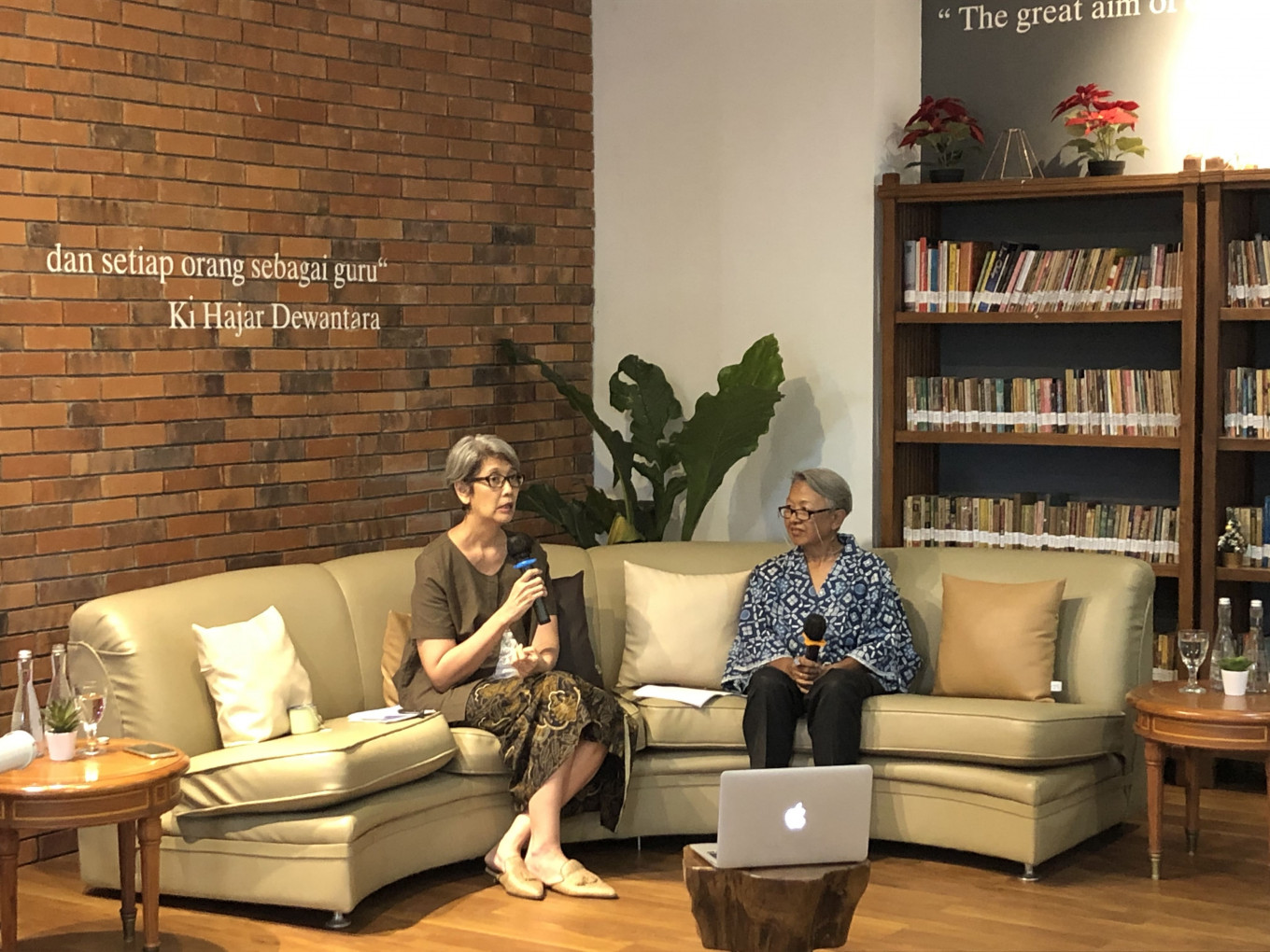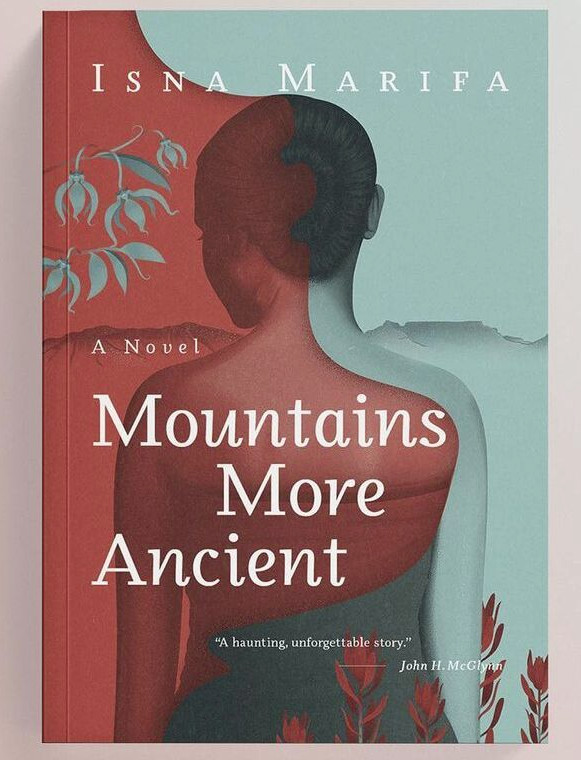Popular Reads
Top Results
Can't find what you're looking for?
View all search resultsPopular Reads
Top Results
Can't find what you're looking for?
View all search results'Mountains More Ancient' sheds light on Indonesian slavery in South Africa
Author Isna Marifa discusses her time with the Cape Malay people and how it influenced her novel Mountains More Ancient.
Change text size
Gift Premium Articles
to Anyone
A
uthor Isna Marifa published her debut work titled Mountains More Ancient in 2020. It is a fictional tale with a real historical backdrop. The novel's main character, Parto, portrays a Javanese man who falls into debt and is sold to the Dutch by a loan shark. Parto takes his daughter, Wulan, with him, thinking that he would be sent to a plantation in Sumatra, but instead, they find themselves in Africa with no way back home.
"They face such an unfortunate situation where they can't decide their future," Isna said.
"However, in that situation, they are able to find spiritual freedom, which gives them a path to survival," she continued.
Isna aims to have readers rediscover facets of their heritage and the intricacies of culture within each person's life.
Toward its end, the story focuses on its characters finding a rare type of "freedom" that comes with surrendering to fate and letting go of one's desires and former life.
Reconnecting
Isna says she began writing the book after she visited South Africa in 2015 when her plane had a stopover in Cape Town.
While in Cape Town for a few days, she delved into a community of Cape Malay in Bo-Kaap, Cape Town, South Africa, formerly recognized as the Malay Quarter.
While exploring the community, she spent an afternoon with a Cape Malay family. Her host was a woman who said one of her grandmothers was originally from Java.
"They asked me, 'What happened in Indonesia around that time [colonial time] that led to our ancestors being taken to South Africa?’ ” Isna recalled a question asked by her host.
During the 17th and 18th centuries, many from the Nusantara islands were forcefully brought as slaves and workers to the Cape of Good Hope in South Africa. Descendants of this population later married other ethnicities, such as Europeans, Asians, Indians and Iranians.
Historical fiction: Mountains More Ancient combines fiction and real-life past events to shed light on the legacy of Indonesian slavery in South Africa. (Courtesy of Kabar Media) (Archive/Courtesy of Kabar Media)The community did not have much information about their ancestors during apartheid from 1949 to 1994.
Despite not having contact with Nusantara communities, the Cape Malay community continues practicing customs that are distinctive to Nusantara customs, such as nyekar, the act of visiting their ancestors' graves during important occasions or holidays.
One of the graves frequently visited by the Cape Malay community to pay their respects was the grave of Abdullah Qadhi Abdussalam, a Prince from the kingdom of Tidore who had revolted against the Dutch's efforts to monopolize the clove trade. The Verenigde Oostindische Compagnie (VOC) captured and banished him to South Africa. In the community, he was also acknowledged as tuan guru, (master teacher) depicting his role in establishing the first mosque and Islamic school in South Africa.
Aside from nyekar, the community also practiced other Indonesian customs, such as debus from Banten, which they called ratieb, a martial art that used sharp objects to pierce parts of the body, usually as part of the celebrations to commemorate the birthday of the Prophet Mohammad.
Isna was fascinated to learn that the early workers from Nusantara spoke Malay to communicate with each other, different to workers sent to Suriname that used Javanese (and continue to use it to this day). Isna also found that Malay words made their way into the language of Afrikaans, such as puasa (fasting), lebarang (Eid, or Lebaran) and mas kawi (dowry). Although in present-day Cape Malays only know a few Malay words, they have a strong sense of identity surrounding their food, customs and beliefs.
This fascination with the historical and cultural links compelled Isna to write a novel on the early Cape Malay community. After her first short trip, she did desk research and returned to Cape Town in 2017 to continue her research.
"First is reintroducing Indonesia, particularly Java, to the Cape Malay people. And second, to encourage the Indonesian readers' awareness that we have a connection to the Cape Malay people in South Africa," she said.
Personal reflection
The book does not focus solely on the evils or pains of slavery. Instead, it tells a story of how they survived such hardship. Isna said the people she met in Cape Town were full of life and were proud of their culture, even though only a few knew about Nusantara.
In her book, Isna also emphasizes a few Javanese notions which could help the reader find peace within themselves, such as nrimo (acceptance) and pasrah (surrender).
The book explores Javanese teachings that help the characters survive hardship. For example, the teaching of nrimo is one of the book's primary themes, which teaches us to be content with what we have.
Then there is eling, meaning remembrance, a Javanese teaching of remembering and honoring the values and legacies of Indonesian ancestors. It also alludes to building complete self-awareness and taking charge of one's behavior, thoughts and spoken words.
"The book is not just about the terrible things that happen to the characters, but it tells more about how they overcome it. I wanted to reflect the flourishing community that I saw in Cape Town and honor them," Isna said.
For young Indonesian readers, Isna hoped the book would encourage their curiosity about their ancient values and culture. There is so much wisdom in Indonesia's traditional cultures and teachings. For example, kejawen teachings encourage the central values of articulating the norms or decent ways of life. To name a few, nyekar is part of the kejawen philosophy.
History matters
In her research, Isna needed help finding information about the Indonesians taken to South Africa. She relied on South African sources for materials on slavery and Cape Malay. Most Indonesian historical research tends to overlook ordinary people in favor of recounting the lives of prominent historical figures. However, the information gap provided space for creativity in which the historical fiction aspect comes into the story.
Isna opines that Indonesia's appreciation of history and the profession of historians have room for improvement. A great deal of Indonesian history is rarely told in a manner digestible to the everyday person.
"If we understand Indonesia's history, we can better understand who we are today," Isna said.
Mountains More Ancient
Author: Isna Marifa
Published by Kabar Media
185 Pages
Language: English












